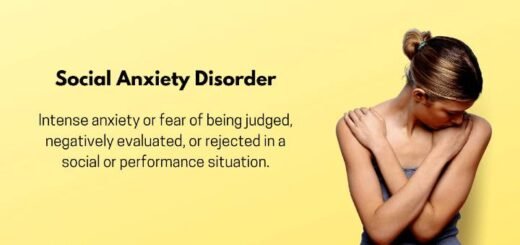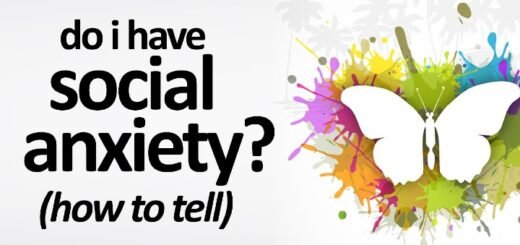Understanding Social Phobia in New Zealand Youth: Signs and School Impact
Social phobia, also known as social anxiety disorder, is a prevalent mental health issue among youth in New Zealand, significantly affecting their daily lives and school attendance. Characterized by an intense fear of social situations, social phobia can lead to avoidance behaviors, which ultimately hinder academic performance and social development. Understanding the signs and symptoms of social phobia is crucial for educators, parents, and peers to provide appropriate support and intervention.
In New Zealand, the impact of social phobia on school attendance is profound, as many students may experience debilitating anxiety that prevents them from participating in classroom activities and social interactions. By raising awareness and fostering a supportive environment, we can help mitigate the effects of social phobia among young people. For more insights on this subject, visit Understanding Social Phobia in New Zealand Schools.
Understanding Social Phobia: An Overview
Social phobia, also known as social anxiety disorder, is a prevalent mental health condition affecting many individuals, particularly youth in New Zealand. It is characterized by an intense fear of social situations where one may be judged or scrutinized by others. This fear can be debilitating, leading to avoidance of social interactions and affecting overall quality of life. In New Zealand, awareness of social phobia is increasing, but many young people remain unaware of their condition or the resources available to them. For a comprehensive understanding of this disorder, it’s crucial to explore its signs, symptoms, and the impact it can have on school attendance and daily life. For more information, visit Social Phobia New Zealand.
Common Signs of Social Phobia in Youth
Identifying social phobia in youth can be challenging, as the signs may vary significantly from one individual to another. Common indicators include excessive self-consciousness, fear of embarrassment in social settings, and physical symptoms such as trembling or sweating when faced with social situations. New Zealand youth may exhibit avoidance behaviors, such as skipping school events or refusing to participate in group activities. Parents and educators should be vigilant for these signs, as early intervention can make a significant difference. Encouraging open discussions about mental health can create a supportive environment for young people to express their feelings and seek help. For more insights, you can check out Social Phobia New Zealand to learn more about recognizing social phobia.
Symptoms of Social Phobia: Emotional and Physical Effects
The symptoms of social phobia can be categorized into emotional and physical responses. Emotionally, young individuals may experience overwhelming anxiety and fear in anticipation of social interactions, leading to feelings of inadequacy and low self-esteem. Physically, symptoms can manifest as rapid heartbeat, sweating, blushing, and even panic attacks. In New Zealand, these symptoms can significantly impact a young person’s ability to engage in school life, leading to decreased participation in classes and extracurricular activities. Understanding these symptoms is crucial for teachers and parents to provide the appropriate support and resources. For further information on managing symptoms, visit Social Phobia New Zealand.
The Impact of Social Phobia on School Attendance
Social phobia can severely affect school attendance among New Zealand youth. The fear of judgment from peers and teachers can lead to chronic absenteeism, as students may avoid situations that trigger their anxiety. This not only hampers their academic performance but also affects their social development. Many students may struggle to form friendships and may feel isolated due to their condition. Schools play a vital role in creating an inclusive environment where students feel safe to express their challenges. Programs that promote mental health awareness and provide adequate counseling services can significantly help students cope with social phobia. For resources on school-based support, visit Social Phobia New Zealand.
Strategies for Coping with Social Phobia
Coping with social phobia requires a multifaceted approach. Cognitive-behavioral therapy (CBT) has proven effective in helping individuals confront their fears and develop coping strategies. Parents and educators can also promote gradual exposure to social situations, allowing youth to build confidence over time. Encouraging participation in group activities, such as sports or clubs, can help reduce anxiety by fostering a sense of community. In New Zealand, schools can implement peer support programs where students can share their experiences and strategies for managing anxiety. For more tips on coping mechanisms, refer to Social Phobia New Zealand.
The Role of Parents and Educators in Supporting Youth
Parents and educators play a crucial role in supporting youth with social phobia. Open communication is key; encouraging children to express their feelings about social situations can help them feel understood and less isolated. Educators can create a safe classroom environment by promoting inclusivity and understanding among peers. Additionally, providing resources and information about social phobia can empower both parents and students to seek help when needed. Initiatives such as workshops and seminars on mental health can further educate families and school staff about the challenges faced by those with social phobia. For more guidance on support strategies, visit Social Phobia New Zealand.
Seeking Professional Help: Resources in New Zealand
For many youth experiencing social phobia, seeking professional help can be a significant step toward recovery. In New Zealand, there are various mental health services available, including counseling and therapy specifically tailored for anxiety disorders. Mental health organizations often provide resources, workshops, and support groups that can help young people navigate their struggles. It’s essential for youth and their families to know that they are not alone and that help is available. Online platforms like Social Phobia New Zealand offer valuable information and resources for those seeking assistance. Encouraging young individuals to reach out for help can lead to improved mental well-being and a more fulfilling school experience.
FAQs
What is social phobia?
Social phobia, also known as social anxiety disorder, is an intense fear of social situations where one may be judged, embarrassed, or scrutinized by others. This fear can lead to significant distress and avoidance of social interactions, impacting daily life and activities, including school attendance.
What are the common signs of social phobia in youth?
Common signs of social phobia in youth include excessive worry about upcoming social events, avoidance of interactions with peers, physical symptoms like sweating or trembling in social situations, and difficulty speaking or making eye contact. These behaviors can often lead to isolation and challenges in forming friendships.
How can social phobia impact school attendance?
Social phobia can severely impact school attendance as students may avoid going to school altogether or skip classes that involve group activities or presentations. This avoidance can lead to academic struggles, decreased participation in extracurricular activities, and even long-term educational setbacks.
What are some symptoms of social phobia?
Symptoms of social phobia may include persistent fear of embarrassment, intense anxiety in social situations, physical symptoms like nausea or rapid heartbeat, and feelings of inadequacy or low self-esteem. These symptoms can manifest in various settings, including classrooms and social gatherings.
How is social phobia diagnosed in adolescents?
Social phobia is typically diagnosed by a mental health professional through clinical interviews and assessments. They will evaluate the individual’s history, symptoms, and the impact of these fears on daily functioning, including school attendance and social interactions.
What treatments are available for social phobia?
Treatments for social phobia often include cognitive-behavioral therapy (CBT), which helps individuals challenge and change negative thought patterns, as well as exposure therapy, which gradually exposes them to feared social situations. In some cases, medications like antidepressants may also be prescribed to help manage symptoms.
How can parents support their children with social phobia?
Parents can support their children by encouraging open communication about their feelings, helping them practice social skills in a safe environment, and seeking professional help if necessary. Understanding and validating their experiences can create a supportive home environment that fosters confidence and resilience.
References
- Understanding Social Phobia – A comprehensive resource dedicated to social phobia in New Zealand, offering insights into symptoms, treatments, and support for affected individuals.
- Understanding Social Anxiety in Children and Youth – A report by the Mental Health Foundation of New Zealand that explores the prevalence and impact of social anxiety on young people’s educational experiences.
- Social Anxiety Disorder – Health Navigator New Zealand provides an overview of social anxiety, including symptoms, causes, and treatment options relevant to New Zealand youth.
- Social Anxiety in Children and Youth – An educational resource from Te Kete Ipurangi that discusses the effects of social anxiety on children and adolescents in the school environment.
- Social Anxiety – A resource from TeensHealth that explains social anxiety, its symptoms, and how it can affect school attendance and social interactions among teens.




